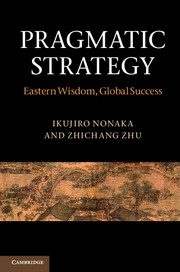2 - Spirits of pragmatism
Published online by Cambridge University Press: 05 June 2012
Summary
Pragmatism is king in our vague new world.
Pragmatism is replacing the old ‘Washington Consensus’.
Pragmatism will become the watchword in business strategy.
Corporate pragmatism will get us out of the mess.
Why Rorty’s search for what works has lessons for business.
These are the headlines that have, since the recent economic crisis exploded, featured in the business media and the speeches of world leaders. Suddenly, everyone appears to be rediscovering pragmatism. But is this merely a short-lived fashion? Is pragmatism, like austerity, just a short-term measure for sorting out the mess? Will it be kicked back into the long grass as soon as the world returns to ‘normal’, and picked up again only when we face another bust? If history tells us anything, then our caution is not entirely unjustified.
Pragmatism has its roots in many cultures. It is an intellectual and moral sensibility in Confucian traditions. Pragmatism is also the most distinctive way of American life. A unique pragmatist spirit is manifested throughout European thought, from Aristotle’s phronesis thesis to Heidegger and Wittgenstein’s later works, and the theories of Nietzsche, Foucault and Habermas. Pragmatism is the heritage of all humankind. It shows us what to do and how to do it in our world of shifting experiences. Pragmatism informs our life in many ways, with or without our being aware of it.
- Type
- Chapter
- Information
- Pragmatic StrategyEastern Wisdom, Global Success, pp. 24 - 74Publisher: Cambridge University PressPrint publication year: 2012



